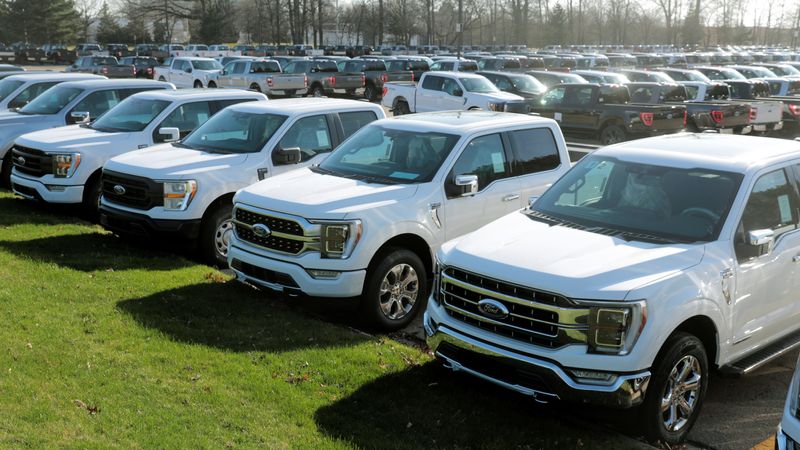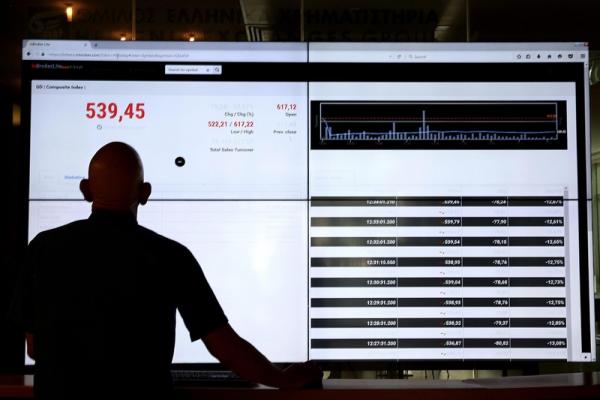By David Shepardson
WASHINGTON (Reuters) – President Joe Biden’s administration on Friday finalized stricter vehicle fuel economy rules through 2031 that are significantly less stringent than initially proposed, a victory for the Detroit Three automakers who lobbied heavily for revised rules.
The National Highway Traffic Safety Administration said it would increase Corporate Average Fuel Economy (CAFE) requirements by 2031 from 39.1 mpg currently to about 50.4 miles per gallon. The new requirement is barely above the 49 mpg previously required by 2026. Last year, NHTSA predicted that its stricter proposal would increase requirements to 58 mpg by 2032.
The agency said the proposed new rules will ultimately reduce compliance penalties from what they would have been under the original proposal. It explained the change by noting that automakers said, “They cannot stop producing large, fuel-efficient light trucks and switch to electric vehicle production at the same time.”
Environmental groups criticized the new rules for not being strict enough, while carmakers welcomed the decision after calling the original proposal unfeasible and warning it would result in dramatically higher car prices.
Biden is running for re-election in November and is working to build support among auto workers and their unions, who had warned against the previous car proposals. Republican candidate Donald Trump has rejected the government’s support for electric vehicles and stricter vehicle regulations.
In July 2023, NHTSA had proposed increasing CAFE requirements by 2% per year for passenger cars and 4% per year for light trucks from 2027 through 2032. The final rule includes no increase for light trucks for 2027 and 2028 and only requires 2%. increases from 2029 to 2031.
Last year, NHTSA said its proposal to increase fuel economy standards through 2032 would cost the industry $14 billion in penalties over five years. This includes $10.5 billion for the Detroit Three: $6.5 billion for General Motors (NYSE:), $3 billion for Chrysler parent Stellantis (NYSE:) and $1 billion for Ford Motor (NYSE:).
Under the final rule, the auto industry will collectively face fines totaling $1.83 billion — which could be as little as nothing — based on different models between 2027 and 2031, NHTSA said.
NHTSA said GM faces a $906 million fine through 2031, while Stellantis faces $368 million and Ford faces nothing.
Automakers, which purchase credits or pay fines if they cannot meet CAFE requirements, individually face $1.5 billion in expected fines for the 2024-2026 model years. In June 2023, Reuters first reported that Stellantis and GM had paid a total of $363 million in CAFE fines for failing to meet U.S. fuel economy requirements for earlier model years.
It is the third regulatory action the Biden administration has taken in recent months, tightening vehicle regulatory proposals less than promised. New compliance calculations for electric cars that were less stringent than proposed, and new exhaust regulations would ultimately force automakers to make fewer electric cars than they originally forecast.
John Bozzella, head of the Alliance for Automotive Innovation trade group that represents major automakers, praised the revisions.
“Those fines would not have provided any environmental benefit or additional fuel consumption and would have foolishly diverted car manufacturers’ capital from the massive investments needed for the transition to electric vehicles,” Bozzella said.

Dan Becker, director of the Center for Biological Diversity’s Safe Climate Transport Campaign, said NHTSA has “caved to automaker pressure” and that the agency’s “weak final rule wastes too much gas, spews too much pollution and cedes the market for clean vehicles to foreign car manufacturers. .”
In addition, NHTSA said it is finalizing new rules to increase the fuel efficiency of heavy-duty pickups and vans by 10% per year between 2030 and 2032 and by 8% per year between 2033 and 2035.


